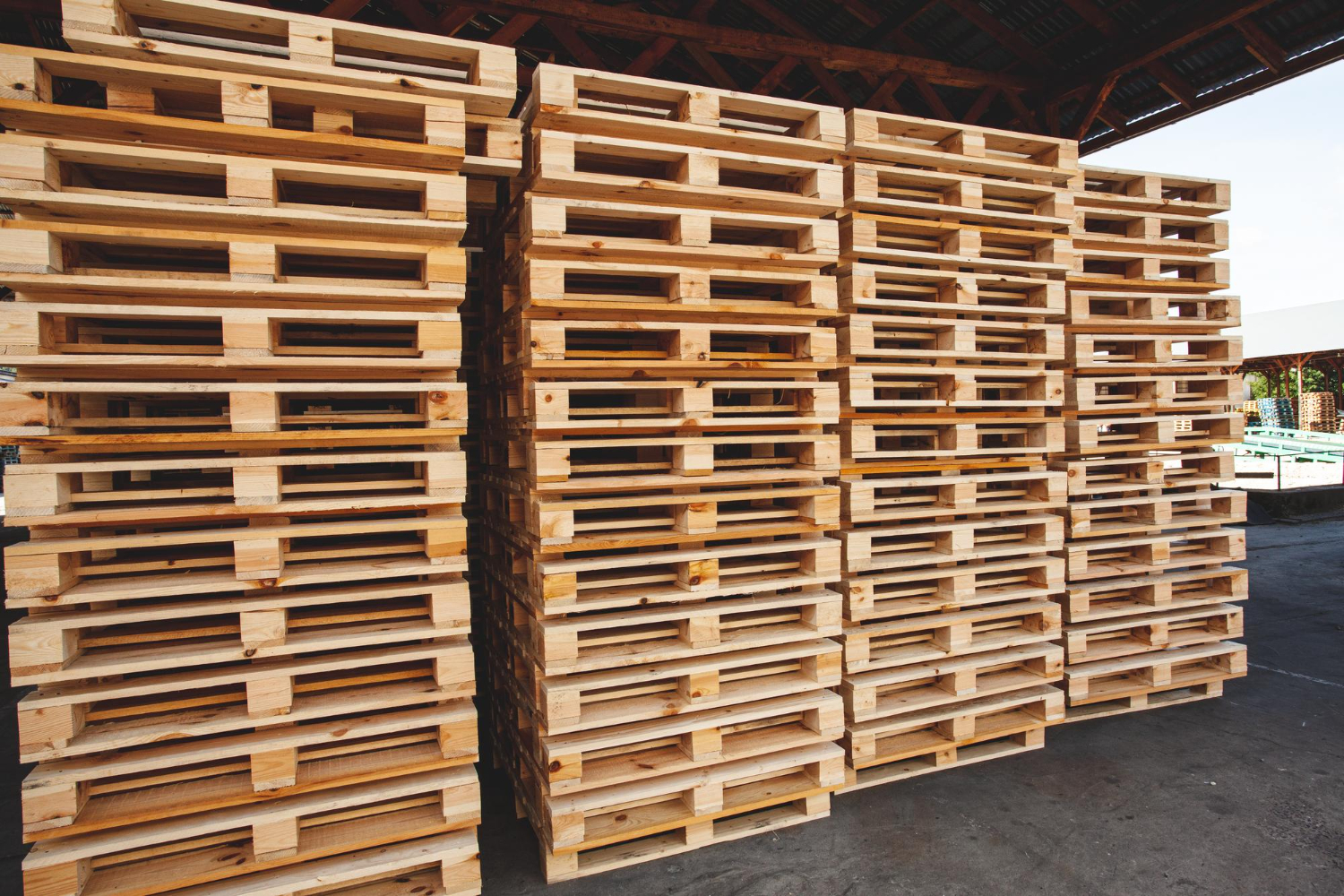Pallets play a big role in keeping shipments safe and steady, especially in places with high moisture levels like storage rooms, outdoor loading areas, or coastal regions. Summer in Rochester, NY often brings humid conditions that can wear down materials faster than expected. A small slip in how pallets are handled or stored can lead to costly damage, delays, and even safety risks. Taking steps to protect pallets against moisture is one way to avoid breakdowns before they ever become a problem.
Knowing what causes the damage and how to prevent it can keep materials moving smoothly. Whether you’re dealing with wooden or composite materials, every choice from the type of pallet used to where it’s placed matters. Moisture doesn’t wait. It seeps into corners, weakens load-bearing parts, and can even lead to mold or rot. With a few smart habits and the right equipment, though, your team can stay ahead of the issue.
Understanding The Challenges Of High-Moisture Environments
Moisture may not seem like a big deal at first, but over time, it can chip away at a pallet’s strength. Wood absorbs water, especially when left in direct contact with wet surfaces or exposed to rain or humid air. Eventually, that moisture can lead to swelling, cracking, or even rotting. This weakens the structure, making it unsafe to hold weight or stack properly during transport or storage.
Outside of wood, other materials aren’t immune either. Metal fasteners can rust, surface coatings may begin to peel, and plastic pallets may become brittle when shifting repeatedly between wet and dry conditions. That kind of wear means higher replacement costs and more frequent checks to prevent things from falling apart without warning.
The constant cycle of wetting and drying is one of the worst stressors any pallet material can face. If the pallets aren’t stored off the ground, shielded from rain, or handled with care, moisture builds up and causes damage that isn’t always visible right away. That’s especially true during the summer months when heat and humidity rise quickly, just like it does in July across Western New York.
Choosing The Right Material For Your Pallets
One of the smartest ways to stop pallet damage before it starts is by picking materials that work well in wet settings. For many packing and shipping operations, using a wooden box pallet makes the most sense. Not only is wood sturdy and affordable, but it can also be treated to help resist water damage. Heat-treated wood, for instance, holds up better against swelling and warping than untreated timber.
Wooden box pallets offer more structure than open-deck pallets, and their closed sides help protect materials from splash-up during loading or rain exposure. They’re especially useful for heavy or oddly shaped items that need extra support. And when they’re made with moisture-resistant finishes or coatings, they last longer even in damp spaces.
Here’s what to look for when considering a wooden box pallet for high-moisture use:
1. Choose treated or kiln-dried wood types to reduce moisture retention
2. Go with hardwoods when possible, as they’re more dense and hold up better over time than softwoods
3. Pick designs with fewer seams or joints that can let water in
4. Ask about weather-resistant coatings or sealants that can extend the lifespan of each pallet
5. Make sure all metal parts, like nails or bands, are corrosion-resistant
While no pallet can fight off moisture forever, the right build and setup can slow the damage and stretch your investment much further. It’s all about pairing the setting with materials that can keep up.
Best Practices For Protecting Pallets
Even with the right materials, pallets still need to be handled and stored the right way, especially during warm, humid seasons. High-moisture environments can strike anytime equipment is exposed to rain, fog, or damp indoor conditions. Summer in Rochester often brings a mix of heat, moisture, and unexpected thunderstorms, which means any exposed area like truck beds or outdoor docks can become a risk zone for wood packaging.
The best line of defense is a plan that focuses on storage routines, moisture prevention, and regular inspections. Taking extra precautions doesn’t take a lot of time but can save a lot of hassle down the line.
Here are a few reliable ways to protect pallets in high-moisture conditions:
1. Store pallets off the floor using racks or supports, especially in damp locations like warehouse basements or open-air yards. This helps limit water absorption from puddles or condensation on cement surfaces
2. Cover stored pallets with waterproof tarps or plastic sheeting when kept outside or in partially enclosed spaces. Avoid non-breathable wraps that trap humidity in hot weather
3. Rotate pallets regularly so the older ones don’t sit unused for long periods, which increases chances of moisture damage or pest exposure
4. Apply sealants or water-resistant coatings to wooden box pallets to help wood fibers resist soaking in water
5. Perform quick visual checks before each reuse to spot signs of mold, swelling, cracking, or rusted metal parts. Early detection can prevent more widespread failures
These steps aren’t costly or complicated, but skipping them can lead to cracked boards, damaged loads, or heavier safety concerns. Proper protection speaks to long-term maintenance. That includes making repairs early and replacing pallets before failures occur under pressure.
Long-Term Solutions And Innovations
While short-term steps help, building a long-term strategy gives you more control over pallet performance year-round. Packaging technologies have come a long way, especially when it comes to dealing with moisture and repeated reuse. This is where engineered wood and treated materials come into play, blocking moisture from taking hold in the first place.
Engineered wood products, like laminated boards or pressed wood alternatives, hold tighter and suffer less warping than traditional cuts. Some wooden box pallet designs now feature drip gaps, relief cuts, and proper drainage planning. These details help prevent water from pooling inside the box or being absorbed into joints. That makes a big difference in humid months.
Weather-specific coatings and surface treatments are also becoming more common. Some coatings add a clear barrier that resists water while still letting air circulate. Others involve light resin sprays, which form a thin but tough outer skin that keeps out both water and chemicals. For operations in upstate New York, that kind of barrier can mean the difference between a fully usable load and one headed for the scrap pile.
It’s also worth considering smarter stacking and airflow management inside storage areas. Using fans, dehumidifiers, or simply spacing stacks of wooden pallets to allow air to flow in between can reduce water buildup in closed storage rooms.
These small adjustments add up. If your operation depends on reliable shipping or material staging, especially in places prone to summer humidity like Rochester, strategic choices now mean fewer delays and damages later.
Keep Your Cargo Safe with Orcon Industries
Letting your pallet system break down leads to more than wasted money. It causes delays, accidents, and added labor that no business has time for. Rochester tends to pack a lot of moisture into its summers, and that humidity has a nasty habit of sneaking in where things aren’t sealed or maintained. If the core of your shipping setup is being weakened by damp conditions, the fix isn’t more tarps or guesswork. It’s smart material selection paired with dependable planning.
Every damaged pallet tells a story of something that could’ve been avoided. That’s what makes consistent maintenance and the right wood builds so important. A wooden box pallet made for these kinds of environments helps maintain better structure, longer life, and better peace of mind.
Taking prevention seriously now can save you from a stack of headaches later. It doesn’t have to be complex. Small shifts like better placement, better choices, and better timing are usually enough to keep things running smooth, dry, and damage-free no matter how much moisture the season brings.
To effectively manage moisture risks in your shipping and storage processes, consider incorporating a wooden box pallet into your logistics setup. These pallets help protect your cargo from humidity-related damage while improving handling and durability. Trust Orcon Industries to deliver customized solutions that keep your materials safe in every season.




